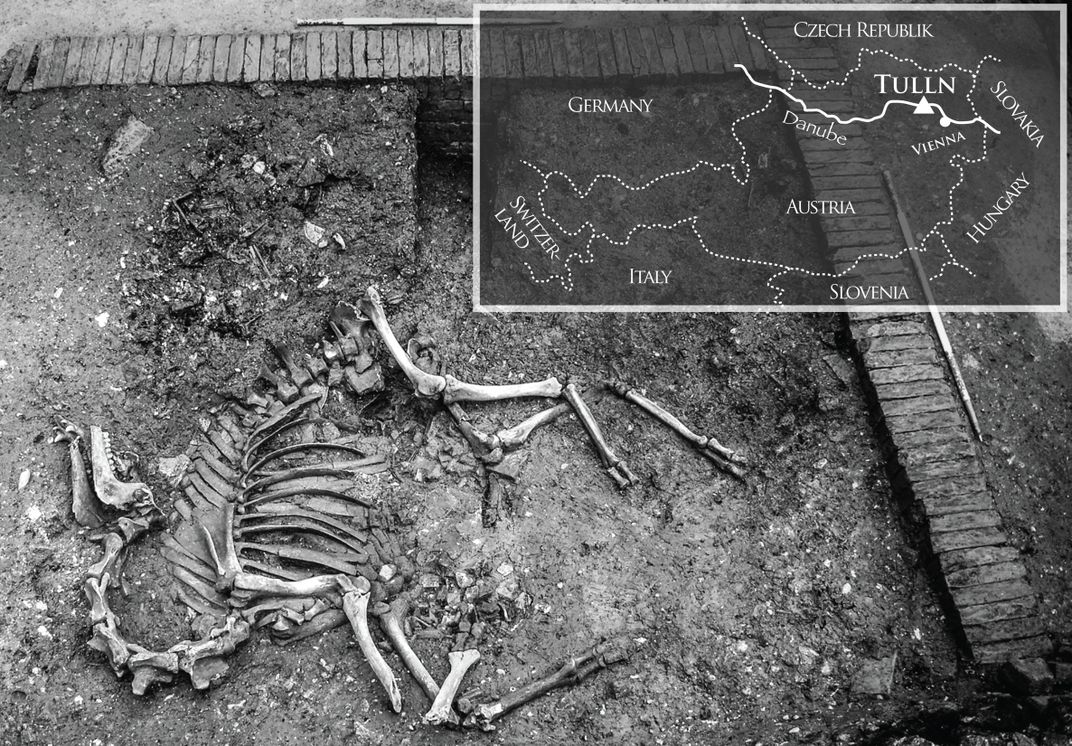How Did an Ottoman War Camel End Up in an Austrian Basement?
Archaeologists think they have solved the mystery
/https://tf-cmsv2-smithsonianmag-media.s3.amazonaws.com/filer/ad/e3/ade3f01d-c770-42dd-b500-88a3f7fa7fa7/42-67260920.jpg)
The discovery of a fully intact camel skeleton in a cellar in Tulln, Austria, in 2006 left archaeologists scratching the heads at how the desert animal ended up on the banks of the Danube. Almost a decade later, a team of researchers in Austria report that they think they have now pieced the puzzle together, they reported last week in a PLOS ONE study.
The story goes back to the two months that led up to the epic 1683 Battle of Vienna, a turning point in the 300-year conflict between the Muslim Ottoman and Catholic Austrian empires. (Researchers dated the camel using the other artifacts buried with it – specifically, coins and a bottle of medicine.) Before the hundreds of thousands Turkish soldiers sieged the city, they likely interacted with the locals on somewhat friendlier terms. Or, at least, the Turks impressed the people of Tulln with their four-legged rides.
The camel's appearance in Tulln "might be linked to an exchange of local people with the troops, or the Ottoman army simply left it behind,” the researchers wrote in their study. “Apparently, the citizens took it inside the town, where they probably kept it and displayed it as an ‘exotic animal.’”
However, the Austrians apparently didn’t know how to care for the unfamiliar creature. While the life expectancy of a camel today is 40 to 50 years, this camel was about seven years old when it died. It was buried whole—the last step in the sequence of events that preserved it as one of the only Ottoman war camel skeletons ever found. Normally, Turkish soldiers would eventually butcher and eat these animals, so intact remains are quite unusual.
Researcher Alfred Galik says the discovery was a highlight of his scientific career, describing the skeleton as an “archaeozoological treasure.” Seems like this particular camel has enjoyed a long history of life in the limelight, in life as well as in death.
